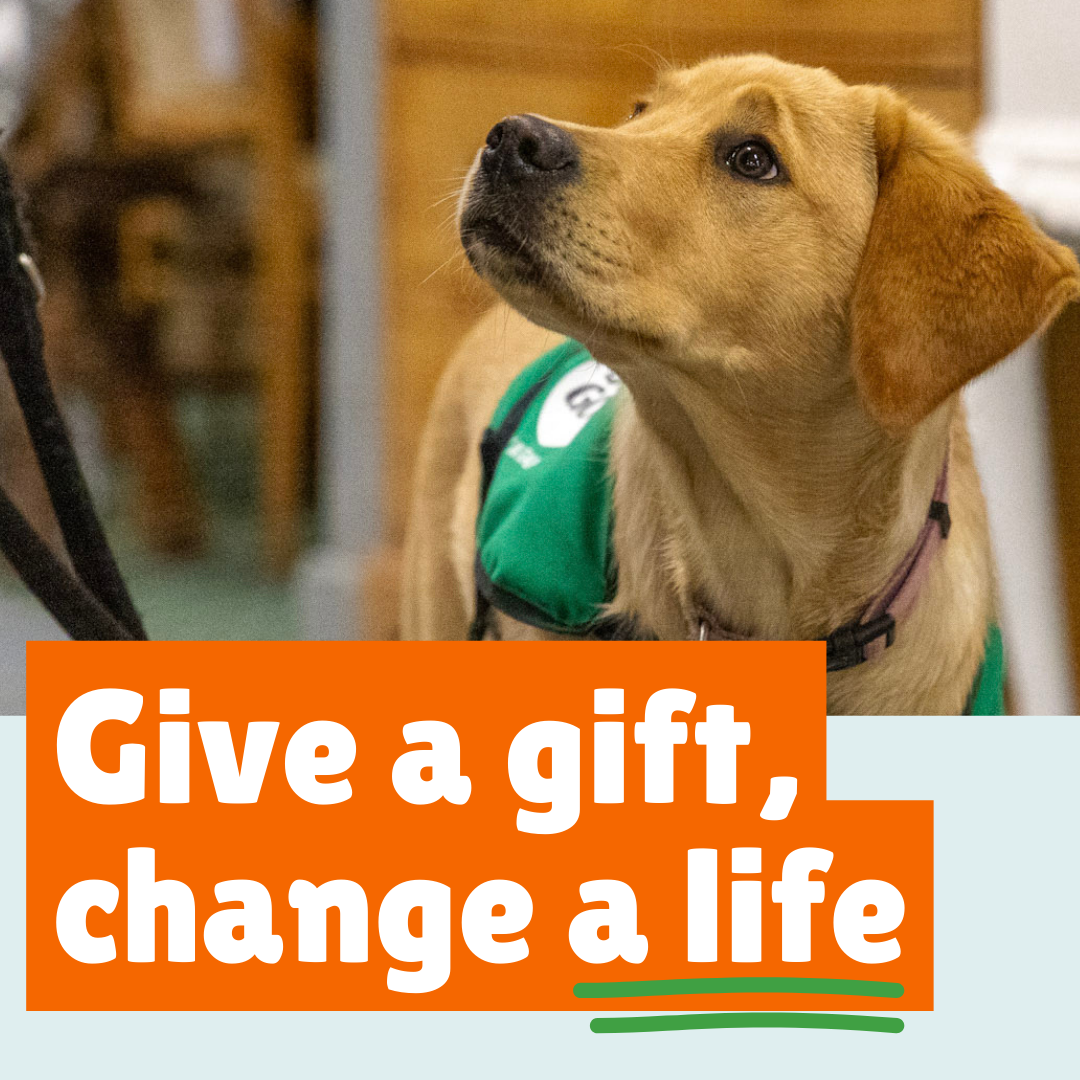We all know how our amazing assistance dogs can help with practical tasks for someone with a physical disability, but do they have an impact on their mental health? Here at Dogs for Good we are firm believers in the power of dogs, so here’s just a few examples of how our assistance dogs give emotional support in addition to all the practical tasks they are trained to do …
No longer feeling invisible
Yvonne found becoming a full-time wheelchair user extremely difficult to come to terms with as she was less able to care for her children. She explains, “As I declined physically, my mental health deteriorated too.”
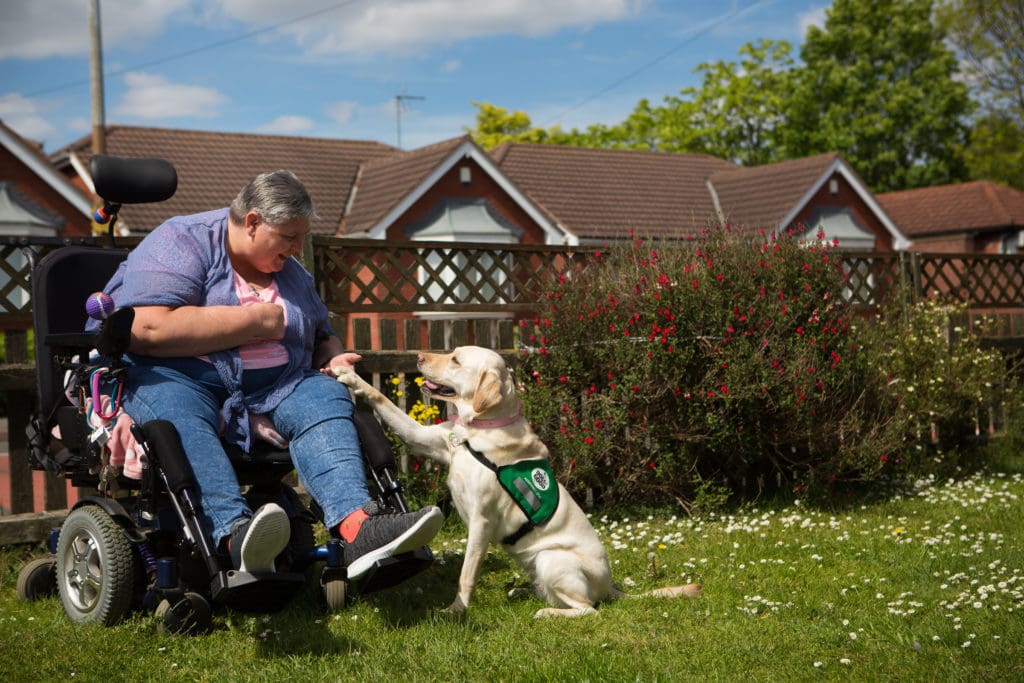
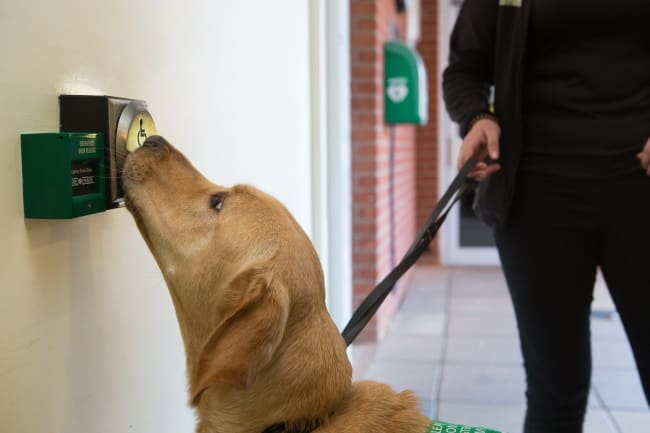
Help us train more life-changing dogs
“Purdy, my amazing assistance dog gives me so much in so many ways – it’s almost too much to put into words. Not only does she help me on a practical level like helping to retrieve items I’ve dropped or can’t reach, bringing the phone and lots of other tasks I simply can’t do on my own, but she helps me emotionally too. My confidence has skyrocketed since having an assistance dog.”
Company at lonely times
Annette was left a paraplegic at a young age due to a benign tumour on her coccyx which wasn’t removed quickly enough when she was a baby. Now in her 50s, she tell us that what her Dogs for Good assistance dogs have done for her over the years is not only practical in terms of support, but also emotional.
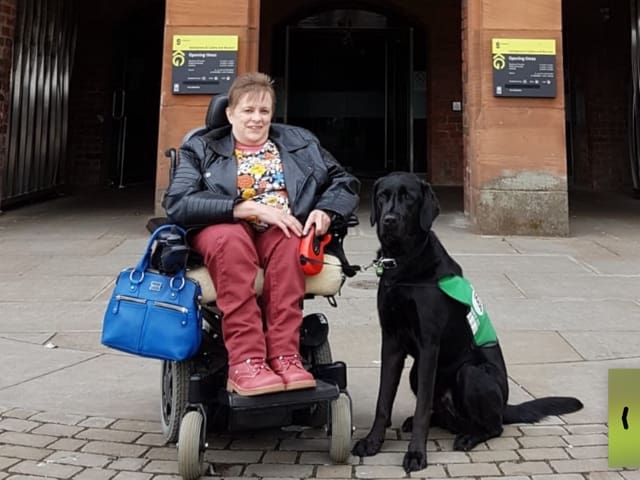
When talking about her current dog Horace she explained “I don’t sleep well and lie awake most nights. The world is a lonely place at that time and often I get a bit fed up. My husband is amazing but he needs to sleep so I don’t disturb him and this is when my wonderful dogs help the most. Horace will gently put his paws on the bed and make his way up to me and it’s so comforting and soothing, having that great big furry, devoted presence beside you.”
Raising a smile
Jazz is Dan’s second assistance dog since a devastating car accident left him a T1 complete paraplegic at the age of 24.
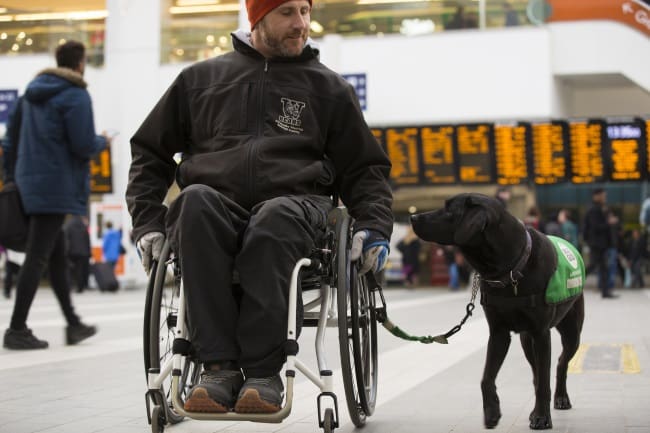
“She’s got a really expressive face and she’s also really chatty. She ‘talks’ to me in the morning to get me up and if that doesn’t work, I’ll get a paw in the face or a nose in the eye… She makes me laugh every single day and to me, she’s priceless.”
Regaining confidence
Diagnosed with cerebral palsy at a young age, Demi uses a wheelchair to overcome movement and coordination difficulties caused by the condition. Her first working dog was a little black Labrador called Bumble, thanks to her support, Demi was able to accept that she needed her wheelchair to enjoy life with Bumble; it helped her view disability differently because it brought assistance dog Bumble into her life.
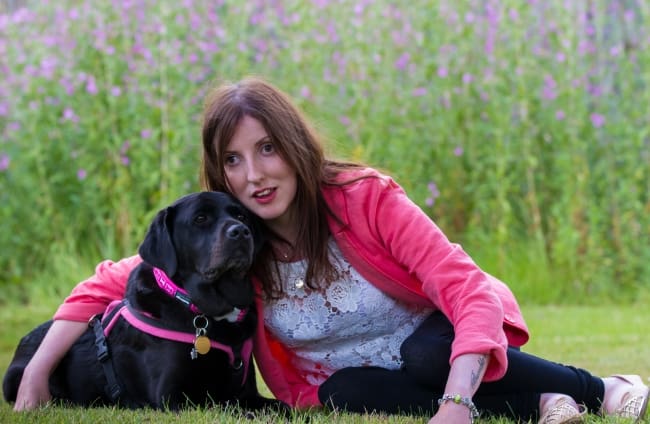
In return for the new-found confidence that transformed her daily existence, Demi wanted to build a better life for her and Bumble. She earned her degree at Worcester University and then trained to be a counsellor. While Bumble is now enjoying her retirement and Demi has a new assistance dog, Kizzy, she credits both dogs with providing great motivation for living her life to the full.
A new focus
Ann is a wheelchair user with needs arising from the brain haemorrhage she had in 2001. “I went to bed one night with a really bad headache and woke up from a coma six weeks later in hospital,” she explains. “In total, I spent 10 months in hospital before coming home to a life, my life, which had changed beyond all comprehension. I became withdrawn and fearful of the future.”
Twickers is a golden Labrador/retriever cross and is Ann’s second assistance dog. “Aside from helping me pick things up, opening and shutting gates and doors, bringing me the post, pulling off socks and gloves etc. it’s the stuff you don’t expect that brings you the most joy.
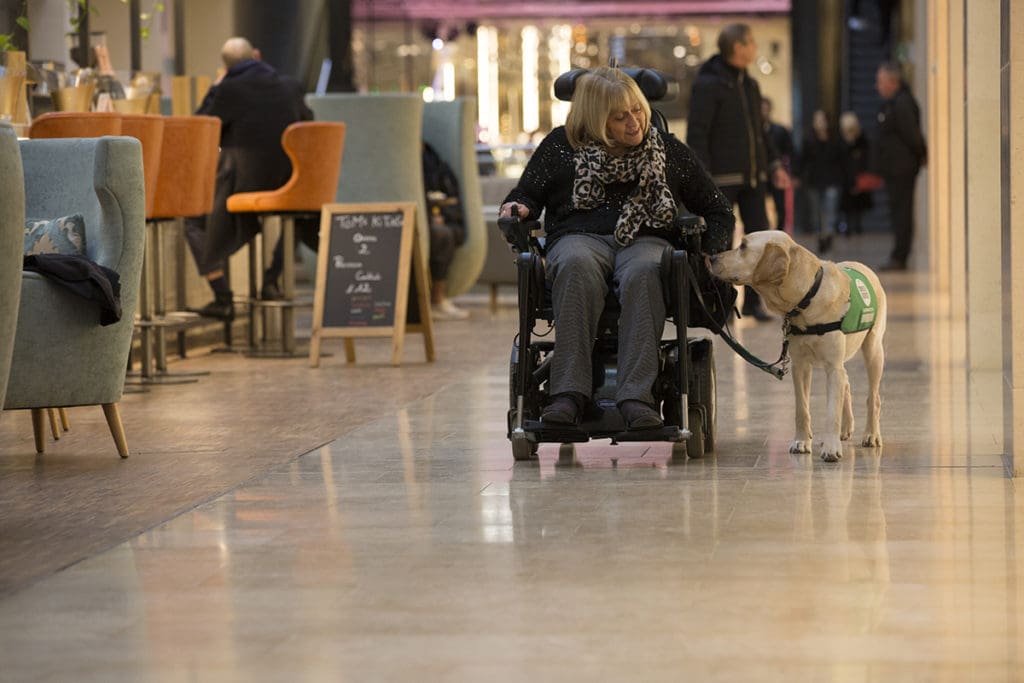
“Before, I was just a lady in a wheelchair. Now, I’m Ann with the lovely, clever, amazing dog and my disability fades into the background.” “Twickers has no concept of my past and because of this, he keeps me firmly focused on my present and, most importantly, my future. He’s always looking forward, so that’s what we do. The past is behind us and every day brings with it the opportunity for chasing more balls!”
We rely on the invaluable support of donors and sponsors to fund our work and any contribution, however small, makes a huge difference. Support our work.
